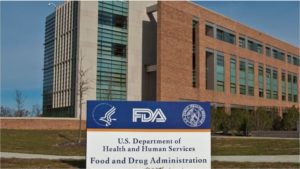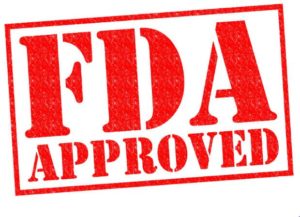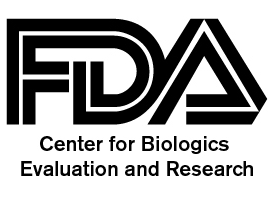- Brexit Guidance: MHRA Outlines What to Expect (raps.org)
The UK’s Medicines & Healthcare products Regulatory Agency...explained what pharmaceutical and medical device companies can expect during the period that the Brexit agreement is implemented...During the implementation period, which will end in December 2020, pharmaceutical firms will be able to continue UK batch release testing and Qualified Person certification in the UK, which will be recognized by the EU and vice versa, MHRA said...But one of the setbacks is that for medicines, the UK will not have voting rights in EMA and EU committees during the implementation period, MHRA said...“Marketing authorisation holders and qualified persons for pharmacovigilance will continue to be able to be based in the UK and access EU markets. There will be continued mutual recognition of manufacturing and distribution licences, as well as associated inspections such as good manufacturing practice (GMP),” the regulator added.
- EMA Recommends First CART-T Cell Therapies (biopharminternational.com)
...the European Medicines Agency recommended Novartis’ Kymriah (tisagenlecleucel) and Kite Pharma’s Yescarta (axicabtagene ciloleucel), chimeric antigen receptor (CAR) T-cells therapies for blood cancer, for approval in the European Union...Kymriah and Yescarta are the first CAR T-cell treatments to be recommended by the agency. In August 2017, Kymriah became the first CAR-T therapy approved by FDA in the United States, with Yescarta becoming the second in October 2017...Both drugs are also the first treatments supported through EMA’s Priority Medicines scheme to receive positive opinions from the Committee for Medicinal Products for Human Use...
- Brexit Is Seen Costing Pharma Hundreds of Millions of Pounds (bloomberg.com)
Brexit uncertainty is forcing drugmakers in Britain to invest hundreds of millions of pounds to maintain the steady supply of medicines to patients, siphoning off money that could have gone to developing new treatments...Pharmaceutical companies are preparing for potential regulatory and trade hurdles after the U.K. leaves the European Union, expanding testing facilities, moving marketing authorizations and drafting contingency plans. Regulatory alignment between the EU and Britain makes sense to all sides, and if Britain remains part of Europe’s drug-approval system, a lot of the investment may prove to have been unnecessary, said Mike Thompson, chief executive of the Association of the British Pharmaceutical Industry...business leaders are urging Prime Minister Theresa May to finalize key Brexit decisions, many are already conducting costly preparations for a rocky break with the EU as the U.K. hurtles toward exiting the bloc in March 2019...The industry is concerned about possible delays in evaluating new drugs when the European Medicines Agency, the bloc’s regulator, moves to Amsterdam from London, he said. The agency is bracing for higher-than-anticipated staff departures due to a host of issues, including the effect of local labor laws on short-term contracts, EMA Executive Director Guido Rasi said in an interview...
- FDA names drugmakers potentially acting to delay cheap generics (reuters.com)
The U.S. Food and Drug Administration...listed a number of drugmakers it said could be improperly blocking access to their medicines in order to delay generic competition...But many of the companies immediately pushed back, saying the FDA list of drugmakers may be out of date and that some of the drugs included on it already have generic competitors...The FDA said the list contained all of the inquiries about drugs it had received from generic drugmakers since 2005. It said companies generally do not inform it if they have made samples available after a generic developer has reached out to the agency...The agency said companies on the list may be using FDA safety regulations and other tactics to deny access to their medicines from generic drugmakers hoping to copy them...The FDA is notifying the Federal Trade Commission, which can investigate anti-competitive acts, of cases where drugmakers may be blocking access to their products if there is no safety reason...
- FDA seals loophole that allowed some drugmakers to avoid pediatric clinical trials (medcitynews.com)
PREA loophole had allowed companies to receive orphan drug designations for diseases common in adults...The Food and Drug Administration moved...to close a loophole that had inadvertently excused some drugmakers from having to conduct clinical trials in children for drugs to treat diseases that commonly affect adults...the FDA announced that it had finalized a draft guidance...intended to close a loophole in the Pediatric Research Equity Act that allowed drug companies making medicines for non-orphan diseases in adults – meaning those affecting more than 200,000 patients – to get pediatric subpopulation designation. Consequently, companies were exempt from conducting the clinical trials in children that PREA would normally have required...“Addressing the inadequate testing of drugs in pediatric populations has been a priority for the FDA, the medical community and Congress and has led to important laws to ensure this important, vulnerable population is not overlooked,” FDA Commissioner Scott Gottlieb said...
- NHS has started planning for Brexit no deal (reuters.com)BMA votes to oppose Brexit “as a whole” and calls for public final say on deal (bmj.com)
Britain’s public health service has started “significant planning” to ensure medicines are still supplied to patients if the government fails to negotiate a Brexit deal with the European Union, its head said on Sunday...Simon Stevens, chief executive of the National Health Service, said Britain’s health department was working with pharmaceutical companies to make sure there will be no breakdown in supply if there is no deal with the EU...The EU warned Britain again last week that time was running out for Prime Minister Theresa May to negotiate a deal and stop the country from crashing out of the bloc...
- Gottlieb Proposes Modernization of Drug Review Office (biopharminternational.com)
...FDA Commissioner Scott Gottlieb, MD, announced that the Center for Drug Evaluation and Research would be taking steps to modernize the organization and functions of the Office of New Drugs in order to address scientific and medical advances within the industry. The goal is to make the review process more integrated across science and regulatory expertise. Janet Woodcock, director of CDER, plans on elevating the role of FDA scientists and medical officers and providing these officers with more tools and support “to advance the clinical and regulatory principles that the FDA uses to evaluate new drugs for safety and efficacy.”...Other changes will include the development of guidance documents, giving review staff more time with sponsors, and getting sponsors involved earlier in the development process. Engaging disease specialists, academic researchers, regulatory partners at other agencies, and patient groups is also a goal of CDER.
- Evidence to support ‘breakthrough’ drugs often very limited: study (reuters.com)
The 46 medicines given approval through 2017 as part of the Food and Drug Administration’s Breakthrough Therapy program have often been sent to patients without a large double-blind study, direct measurement of benefit, or comparison with a placebo or existing treatment, according to a new analysis...“FDA approval of these breakthrough therapies is generally based on shorter and smaller clinical trials than those that support FDA approval of non-breakthrough therapy drugs,” coauthor Dr. Joseph Ross....expediting drug approvals raises concerns that important safety or effectiveness information will be missed, potentially heightening risk of patient harm...The study, published in the Journal of the American Medical Association, did not examine whether the drugs were actually as effective and safe as pre-approval testing suggested. In some cases the FDA doesn’t require such post-marketing studies for “breakthrough” drugs...people, when they hear ‘breakthrough designation,’ assume the ‘breakthrough’ is based on great clinical trial evidence but it’s actually more of an expectation that this is promising...My expectation is that this is what the public and clinicians (and Congress!) wants - more novel therapies coming to market as quickly as is reasonably possible, while still assuring drug safety and efficacy...questions persist on whether a larger trial will produce a different result, whether the benefit will fade as treatment continues, whether a drug will prove to be dangerous over the long term and whether a drug will really make a difference in long-term quality of life or survival...
- CBER Launches new Program for Early Interaction With Biologics Developers (raps.org)
The US Food and Drug Administration's Center for Biologics Evaluation and Research...announced it is launching a new program for early meetings with biologics developers...The new program, called INTERACT (Initial Targeted Engagement for Regulatory Advice on CBER ProducTs), replaces CBER's existing pre-investigational new drug meeting program...We know that academic investigators, small and medium enterprises, and sometimes even large companies can have questions regarding the path from preclinical to clinical development for biological products—particularly those that raise new regulatory questions," said CBER Director Peter Marks...the new program will be better tailored to providing input to biologics developers at early stages of development and will help sponsors plan their development programs to gather evidence needed for FDA approval more effectively.
- EMA post-Brexit: will the UK become a second-tier state? (pharmaceutical-technology.com)The impact of Brexit on the pharmaceutical sector (publications.parliament.uk)
...the Business, Energy and Industrial Strategy Committee released a report detailing the consequences of the UK leaving the EU without a deal for the pharmaceutical industry...UK-headquartered pharma companies generated a total of $87.5bnin global sales...A small reduction in the size of the sector could therefore have significant effects on the UK economy...Findings in the BEIS report suggest that if the UK fails to reach an agreement with the EU for the industry during Brexit negotiations, there is a risk of the UK becoming a second-tier state in pharmaceuticals...The UK’s future role in the European Medicines Agency...is expected to significantly impact the UK’s pharmaceutical sector post-Brexit. If the UK government does not negotiate regulatory parity with the European Economic Area, the UK will no longer have access to the single marketing authorisation for EU and EEA countries, requiring companies to submit a separate UK application for any new drug...This would require duplication of staff and facilities to conduct clinical trials and submit regulatory applications in both the UK and the EU, costing pharmaceutical companies millions of dollars. BEIS warns these consequences will make the UK an unattractive small market and result in complete loss of access to certain drugs, particularly specialised therapies...










